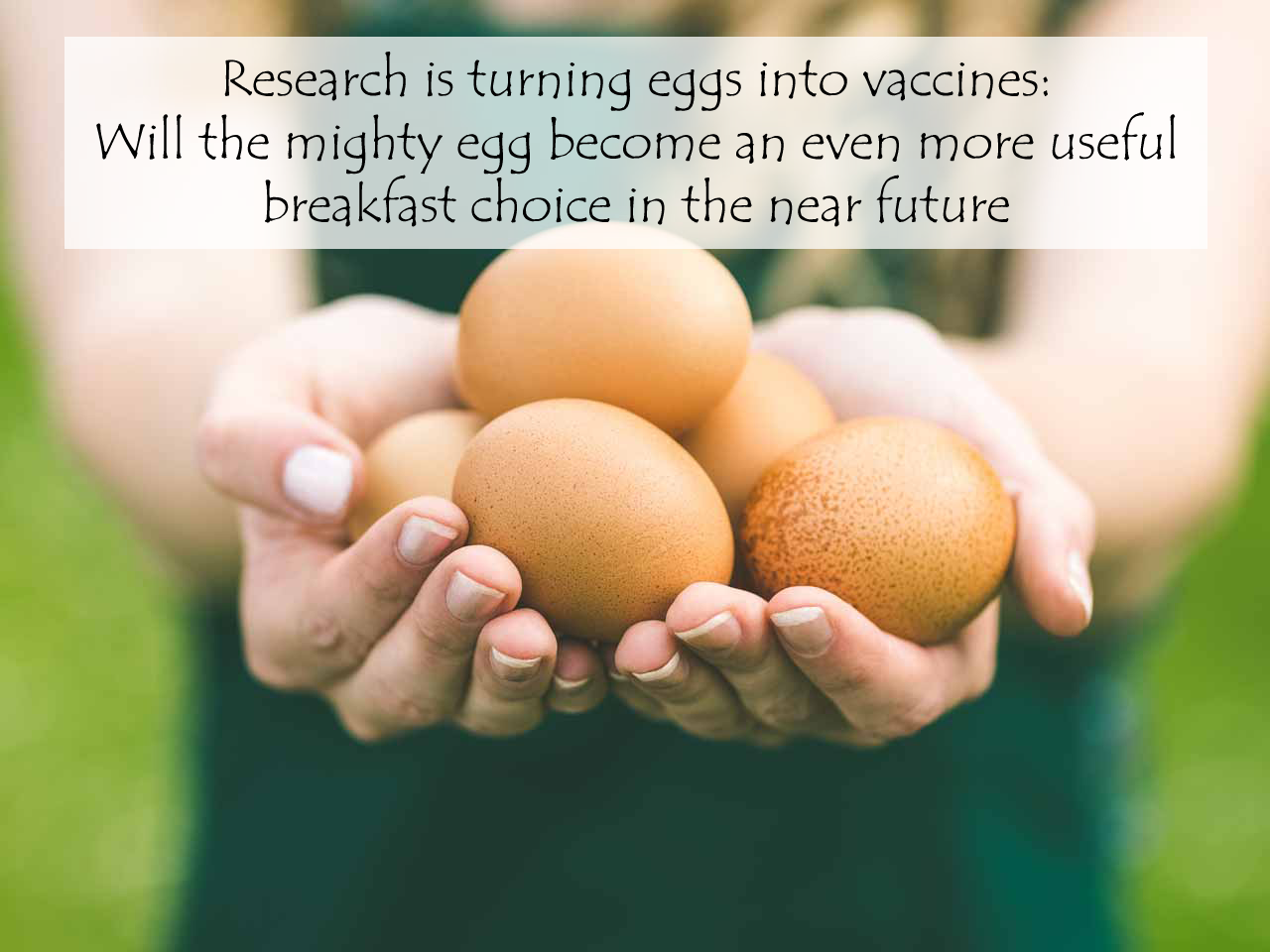Research is turning eggs into vaccines: Will the mighty egg become an even more useful breakfast choice in the near future

The mighty egg: full of protein, fatty acids, and vitamins.
Not to mention, it’s one of the most versatile foods I can think of, one that can be turned into all sorts of amazing breakfasts: Sunny side up eggs and bacon, scrambled eggs with salsa and guacamole, simple poached eggs turned into eggs Benedict, or eggs turned into a loaded omelette or frittata. Not to mention French toast. Oh my, French toast. Basically, eggs are man’s best breakfast friend. And dinner friend, too, if you’re in breakfast for dinner.
And now, researchers are experimenting with eggs to give them vaccine powers. Specifically, they’re finding ways to grow human cytokines in chicken eggs.
Cytokines are proteins that influence your immune cells and your body’s immune response. Growing these cytokines in eggs we eat means eggs have the potential to be germ-killing, infection fighting vaccines that guard against specific illnesses in the future.
In order to produce these cytokines in eggs, researchers encode them into the hens’ DNA, and then the proteins grow right into the egg white of the egg. Pretty fascinating stuff.
Currently, researchers at the National Institute of Advanced Industrial Science and Technology in Japan are working on producing human interferon beta in chicken eggs—a cytokine used to treat multiple sclerosis. They’re also working on infusing eggs with various proteins to treat diseases like hepatitis and cancer.
If you’re a nerd and want to dig deeper, check out more of the research here: (https://bmcbiotechnol.biomedcentral.com/articles/10.1186/s12896-018-0495-1).
Since we’re a ways away from purchasing vaccine-infused eggs at our grocery stores to hear our latest ailment, let’s look at the top five reasons to eat regular old eggs on a weekly basis.
5. Vegetarians
If you don’t eat meat, getting enough protein can be challenging, especially if you’re trying to avoid processed foods, such as soy products like tofu or tempeh, or legumes like black beans.
Truth is, it’s pretty hard to get enough protein if you’re a vegetarian, and even your vegetarian protein options often have more carbohydrates than protein. For example, quinoa, a common protein many vegetarians rely on, has 39 grams of carbs and actually only 8 grams of protein.
But the one and the only egg has 6 grams of protein, meaning a triple egg omelet with spinach and feta can get you 18 grams of protein from the eggs alone. And even if you’re not a vegetarian, eggs are a great way to get your protein on.
4. Vitamin and mineral Pump
Eggs have a ton of vitamins—B5, B12 and B2, some Vitamin E and K—as well as phosphorus, selenium, calcium and zinc, essential vitamins and minerals our bodies need for various functions.
3. Keep you full longer
Because of their high protein content, eggs are a great way to start your day (much better than cereal, oatmeal a bagel with cream cheese). They keep you more satiated and thus less likely to snack an hour after breakfast because you’re hungry again.
2. Fight against heart disease
The age-old belief that eggs give you high cholesterol has essentially been debunked as but a mere myth we should all move on from. Newer research suggests eggs actually help increase your good cholesterol, meaning for most of us it’s perfectly healthy to eat three eggs a day.
Check out more here: (https://www.healthline.com/nutrition/how-many-eggs-should-you-eat#section1).
Not only that, eggs contain choline, which plays a role in breaking down the amino acid homocysteine, often associated with the development of heart disease.
1.Healthy fat
One egg has 5 grams of fat—healthy fat necessary for a good diet. They also have lots of Omega-3 fatty acids, which help with brain function among other things.
For more about eggs and selecting good ones—grass-fed versus free-range versus Omega-3 enriched eggs, check out this blog we wrote a while back (Read here).





